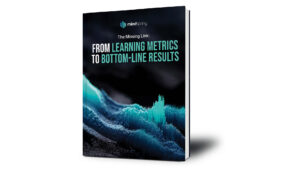
Learning Management Systems (LMS) have become indispensable tools for organizations looking to deliver learning and development (L&D) programs efficiently. The right LMS can streamline content delivery, track learner progress, and provide valuable insights into the effectiveness of L&D initiatives. With numerous options available on the market, making an informed decision requires a thorough understanding of what each platform offers and how it aligns with your specific needs. To help you shorten the decision-making time, we have created a comprehensive guide to comparing LMS solutions, highlighting the key considerations to help you select the best platform for your organization.
Understanding Your Needs
Before diving into the specifics of various LMS platforms, it’s essential to clearly define your organization’s needs and learning objectives. Begin by considering these questions.
- What is the primary purpose of the LMS? Is it for corporate training, educational courses, compliance training, etc.?
- Is this for internal employees? Or external Customers?
- Will you need an eCommerce engine to sell your training experiences?
- Who are the primary users? Consider the needs of administrators, instructors, and learners.
- What is your budget? LMS platforms widely vary in cost, knowing your budget will help you better narrow down your options.
- What are your learning objectives? Knowing this will better determine what type of functionality you may be looking for.
- What types of content will you be delivering? Videos, quizzes, interactive modules? ILT? Scheduling?
Now that you have a better understanding of your needs and what you are looking to get out of an LMS, we can dive into the key considerations when you’re comparing LMS solutions.
Key Considerations When Comparing LMS Solutions
User Experience
The first thing to consider is user experience (UX). An intuitive, easy-to-navigate interface can enhance engagement and reduce the learning curve for both instructors and learners. Look for platforms that offer:
- A clean and modern design: A visually appealing interface can boost user satisfaction.
- Ease of use: Both administrators and learners should find the platform straightforward and easy to use.
- Mobile accessibility: An LMS that is accessible and fully functional on mobile devices can accommodate for on-the-go learning.
Features and Functionality
The features of an LMS should align with your needs. Common features to consider include:
- Course creation and management: Look for tools that simplify the creation and organization of courses.
- Communication tools: Forums, chat, and messaging capabilities help to facilitate interaction.
- Reporting and analytics: Detailed reports on learner progress and engagement help when….
- Content management: The ability to tailor the platform to your brand and specific requirements.
Integration Capabilities:
Most likely, you are going to have other systems and tools that your LMS solution should seamlessly integrate with, such as:
- HR Systems: For easy use of synchronization.
- Third-Party content providers: To expand your content library.
- Productivity tools: Integration with tools like Office 365, Google Workspace, and communication platforms like Slack.
Scalability
As your organization grows, your LMS should be able to scale accordingly. Consider platforms that offer:
- Flexible pricing models: Options that cater to both small organizations and large enterprises.
- Performance under load: The ability to handle a large number of simultaneous users without performance issues.
Support and Training
Reliable customer support and training resources are essential for smooth LMS operation. When deciding on an LMS, evaluate:
- Support options: Availability of 24/7 support, dedicated account managers, and comprehensive help documentation.
- Training resources: Tutorials, webinars, and a community of users for peer support.
Security and Compliance
Data security and compliance with relevant regulations are non-negotiable. Ensure the LMS provides:
- Data encryption: Protection of data in transit and at rest.
- Compliance with standards: Such as GDPR, FERPA, and other relevant regulations.
- Regular updates and patches: To address security vulnerabilities.
Popular LMS Platforms
Litmos
Litmos’ intuitive LMS and robust content options make it easy to build impactful training programs and accurately track the results. Litmos services support your training program success.

Learning Cart
Learning Cart provides a comprehensive e-commerce platform for organizations to easily market, seamlessly deliver, and profitably sell their learning and training products.
Eurekos
Eurekos provides an external training solution that is a perfect fit for global enterprises, professional training companies, and organizations who need to reach their entire extended enterprise.
Making the Final Decison
When making your final decision, it’s beneficial to conduct a pilot test of your short-listed LMS platforms.
- Evaluate performance in a real-world setting to see how the platform handles your specific requirements.
- Gather feedback from users: Obtaining insights from administrators, instructors, and learners on their experience.
- Identify any potential issues and address challenges before committing to a platform long-term.
We recommend you also consider the following steps:
- Request demos and trials: Most LMS providers offer free trials or demos. We recommend using these to explore the platform’s capabilities prior to committing.
- Review case studies and testimonials to learn about other users’ experiences in your industry.
- Assess total cost of ownership: Beyond the initial purchase price, consider ongoing costs such as maintenance, support, and upgrades.
Comparing LMS solutions and selecting the right one is a significant investment in your organization’s future. By carefully considering user experience, features, integration capabilities, scalability, support, security, and compliance, you can make an informed decision that meets your organization’s current and future needs. Whichever platform you choose, the right LMS can transform your learning and training initiatives, driving success for your organization. Remember, the best LMS is one that not only meets your needs, but also adapts to your organization’s growth and evolving requirements.
At MindSpring, we have extensive experience working with a variety of LMS platforms. Our team can guide you through the selection process and recommend the best solution tailored to your organization’s unique needs. Let us help you make the most of your investment and ensure long-term success in your learning and development initiatives.
Looking for more LMS support?
Reach out to us directly, below, or check out our partners page for vetted off-the-shelf support.



